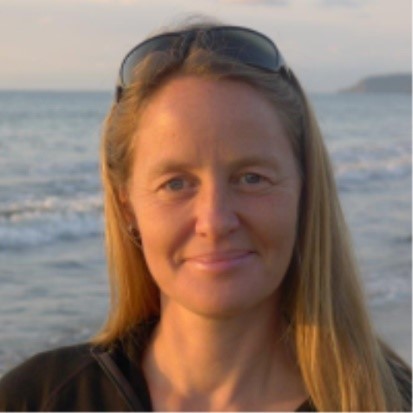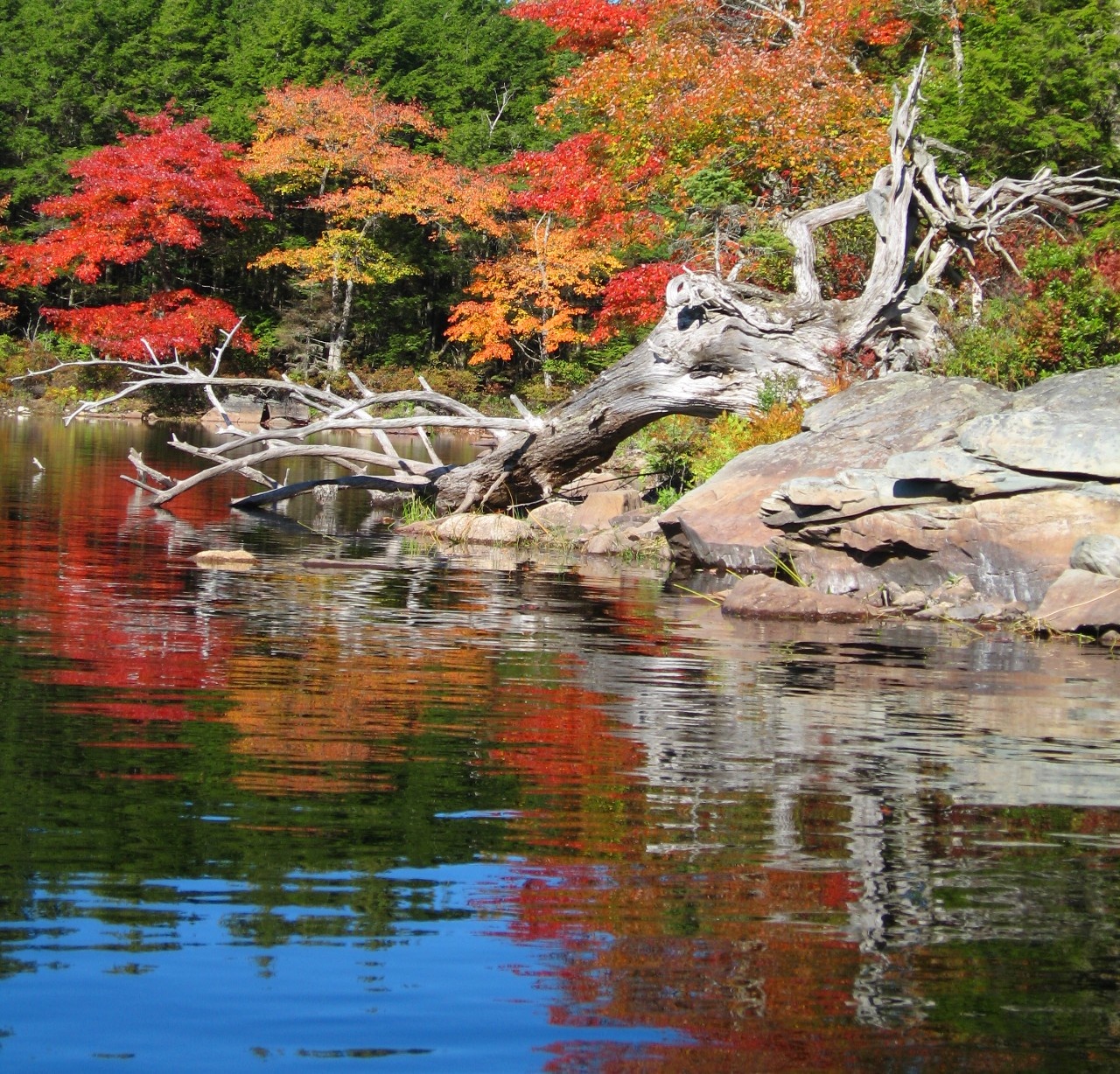Heike Lotze
 |
PROFESSOR Distinguished Research Professor (2022-2027) Canada Research Chair in Marine Renewable Resources (2006-2016) |
||||
| Teaching & Research marine ecology, renewable resources, coastal ecosystems, human impacts, ecological history, future projections, community ecology, ecosystem structure and functioning, management and conservation
°Õ³ó±ðÌýlong-term history of change is often ignored in the study and management of today’s ecosystems. However, historical baselines and estimates of the total magnitude of change are essential to judge the current state of degradation and develop meaningful management and conservation goals. Past trends are also necessary to develop future projections. Human impacts not only accelerated over time but also expanded from inshore regions to the open ocean and the deep sea causing large-scale patterns of changes in diversity and community structure around the globe. Finally, human impacts multiplied throughout history and today, most species and ecosystem are affected by the cumulative effects of multiple human activities that don’t act in isolation. In my work, I try to reconstruct the long-term history of human-induced changes in marine species and ecosystems, to disentangle the cumulative effects of multiple human activities, and to analyze the consequences of changes on the structure and functioning of ecosystems today and into the future. I use a multi-disciplinary approach integrating data from paleontology, archaeology, history, fisheries science, ecology, and climate science, and a combination of field surveys and laboratory experiments, literature studies, ecologucal modelling and the analysis of large data sets.
|
|||||
Examples of Students' Research Topics
- Nakia Cullain (PhD, 2021-2026): Movement ecology of the reef manta ray in southern Africa: assessing occurrence and distribution to inform conservation and management
- Emily Cormier (Masters, 2021-2024): Multi-decadal habitat changes mapped via remote sensing and implications for juvenile lemon shark nurseries
- Andrea Bryndum-Buchholz (PhD, since 2016): Impacts of 21st century climate change on fish biomass and marine ecosystems.
- Kristen Wilson (Masters, 2015-2017): Assessing and predicting distribution shifts of canopy-forming marine macrophytes in the Northwest Atlantic with remote sensing and species distribution models
- Nakia Cullain (Masters, 2014-2016): Macroinfaunal communities in seagrass beds in Atlantic Canada.
- James Scott McCain (Masters, 2014-2016): Historical analysis of fish in coastal ecosystems
- Reba McIver (Masters, 2012-2015): Quantifying nitrogen loading and corresponding eutrophication symptoms in 7 bays in Eastern New Brunswick, Canada.
- Lauren Kay (Masters, 2012-2015): Canopy and community structure of rockweed beds in Nova Scotia and New Brunswick.
- Allison Schmidt (PhD, 2006-2012): Causes and consequences of ecological changes in near-shore habitats.
- Anna Magera (Masters, 2008-2011): Recovery trajectories for marine mammals – developing new models and identifying critical factors to recovery.
- Sean Anderson (Masters, 2007-2010): Patterns and ecosystem impacts of global invertebrate fisheries expansion.
- Christine Ward-Paige (PhD, 2005-2010): ‘Using divers' logs to detect changes in coastal shark populations.
- Francesco Ferretti (PhD, 2004-2011): The role of sharks in marine ecosystems: evaluating overexploited marine fish communities to detect long-term effects of predator removal.
Ìý
Eddy TD, Heneghan RF, Bryndum-Buchholz A, […] Lotze HK, et al. (2025) Global and regional marine ecosystem model climate change projections reveal key uncertainties. Earth’s Future 13(3): e2024EF005537. https://doi.org/10.1029/2024EF005537.
Novaglio C, Bryndum-Buchholz A, Tittensor DP, Eddy TD, Lotze HK, Harrison CS, Heneghan RF, Maury O, Ortega-Cisneros K, Petrik CM, Roberts KE, Blanchard JL (2024) The Past and Future of the Fisheries and Marine Ecosystem Model Intercomparison Project. Earth’s Future 12(9): e2023EF004398. https://doi.org/10.1029/2023EF004398.
McClenachan L, Rick T, Thurstan RH, […] Lotze HK, et al. (2024) Global research priorities for historical ecology to inform conservation. Endangered Species Research 54: 285-310. https://doi.org/10.3354/esr01338.
Finnegan S, Harnik P, Lockwood R, Lotze HK, McClenachan L, Kahanamoku SS (2024) Using the fossil record to understand extinction risk and inform climate-adapted conservation in a changing ocean. Annual Review of Marine Sciences 16: 307–333 https://doi.org/10.1146/annurev-marine-021723-095235.
Bryndum-Buchholz A, Blanchard J, Coll M, […] Tittensor D, Lotze HK (2023) Applying ensemble ecosystem model projections to future-proof marine conservation planning in the Northwest Atlantic Ocean. Facets 8: 1-16. https://www.facetsjournal.com/doi/10.1139/facets-2023-0024.
Bryndum-Buchholz A, Lotze HK, Novaglio C, Eddy TD. 2023. Ocean Biomass and Climate Change. Earth Systems and Environmental Sciences. https://doi.org/10.1016/B978-0-323-90798-9.00010-X.
Yasuhara M, Huang HHM, Reuter M, […] Lotze HK, et al. (2023) Hotspots of Cenozoic tropical marine biodiversity. Oceanography and Marine Biology: An Annual Review 6: 243-300. http://dx.doi.org/10.1201/9781003288602-5.
Lotze HK, Mellon S, Coyne J, et al. (2022) Long-term ocean and resource dynamics in a hotspot of climate change. Facets 7: 1142-1184. https://dx.doi.org/10.1139/facets-2021-0197.
Murphy GEP, Kelly N, Lotze HK, Wong M (2022) Incorporating anthropogenic thresholds to improve understanding of cumulative effects on seagrass beds. Facets 7: 966-987. https://dx.doi.org/10.1139/facets-2021-0130.
Bryndum-Buchholz A, Boerder K, Stanley RRE, Hurley I, Boyce DG, Dunmall KM, Hunter KL, Lotze HK, Shackell NL, Worm B, Tittensor DP (2022) A climate-resilient marine conservation network for Canada. Facets 7: 571-590. https://dx.doi.org/10.1139/facets-2021-0122.
Martin MA, Alcaraz Sendra O, Bastos A, […] Lotze HK, et al. (2021) Ten new insights in climate science 2021: a horizon scan. Global Sustainability 4(e25): 1-20. https://doi.org/10.1017/sus.2021.25.
Tittensor DP, Novaglio C, Harrison CS, […] Lotze HK, et al. (2021) Next-generation Earth system models reveal higher climate risks for marine ecosystems. Nature Climate Change 11: 973-981. https://doi.org/10.1038/s41558-021-01173-9.
Lotze HK (2021) Primer: Marine biodiversity conservation. Current Biology 31: R1141–R1224, https://doi.org/10.1016/j.cub.2021.06.084.
Bryndum-Buchholz A, Tittensor DP, Lotze HK (2021) The status of climate change adaptation in fisheries management: policy, legislation, and implementation. Fish and Fisheries 22(6):1248-1273, https://doi.org/10.1111/faf.12586.
Makareviciute-Fichtner K*, Matthiessen B, Lotze HK, Sommer U (2021) Phytoplankton nutritional quality is altered by shifting Si:N ratios and selective grazing. Journal of Plankton Research 43(3):325–337, https://doi.org/10.1093/plankt/fbab034
Milewski I, Smith RE, Lotze HK (2021) Interactions between finfish aquaculture and American lobster in Atlantic Canada. Ocean and Coastal Management 210:105664, https://www.sciencedirect.com/science/article/abs/pii/S0964569121001484.
Shackell NL, Keith DM, Lotze HK (2021) Challenges of gauging the impact of area-based fishery closures and OECMs: A case study using long-standing Canadian groundfish closures. Frontiers in Marine Science 8:612859. https://doi.org/10.3389/fmars.2021.612859.
Murphy GEP, Dunic J, Adamczyk EM, Bittick SJ, Côté IM, Cristiani J, Geissinger EA, Gregory RS, Lotze HK, O’Connor MI, Araújo CAS, Rubidge EM, Templeman ND, Wong MC (2021) From coast to coast to coast: Ecology and management of seagrass ecosystems across Canada. Facets 6: 139-179, https://doi.org/10.1139/facets-2020-0020.
Lotze HK (2020) Combining love and knowledge to heal the ocean. In Bearzi G, Stergiou KI (eds) Theme Section 'Marine Biology in a World of Wounds'. Ethics in Science and Environmental Politics 20:33-39, https://doi.org/10.3354/esep00193.
Bryndum-Buchholz A, Boyce DG, Tittensor DP, Christensen V, Bianchi D, Lotze HK (2020) Climate change impacts and fisheries management challenges in the North Atlantic Ocean. Marine Ecology Progress Series 648:1-17, https://doi.org/10.3354/meps13438.
Boyce D, Lotze HK, Tittensor DP, Carozza D, Worm B (2020) Future ocean biomass losses may widen socioeconomic equity gaps. Nature Communications 11:2235, https://doi.org/10.1038/s41467-020-15708-9
Wilson KL, Tittensor DP, Worm B, Lotze HK (2020) Incorporating climate change adaption into marine protected area planning. Global Change Biology 26:3251–3267. https://doi.org/10.1111/gcb.15094.
Duarte CM, Agusti S, Barbier E, Britten GL, Castilla JC, Gattuso J-P, Fulweiler RW, Hughes TP, Knowlton N, Lovelock CE, Lotze HK, Predragovic M, Poloczanska E, Roberts C, Worm B (2020) Rebuilding marine life. Nature 580:39-51. https://www.nature.com/articles/s41586-020-2146-7.
Bryndum-Buchholz A, Prentice F, Tittensor DP, Blanchard JL, Cheung WWL, Christensen V, Galbraith ED, Maury O, Lotze HK (2020) Differing marine animal biomass shifts under 21st century climate change between Canada’s three oceans. Facets 5:105–122. https://dx.doi.org/10.1139/facets-2019-0035.
Ìý
Ìý

